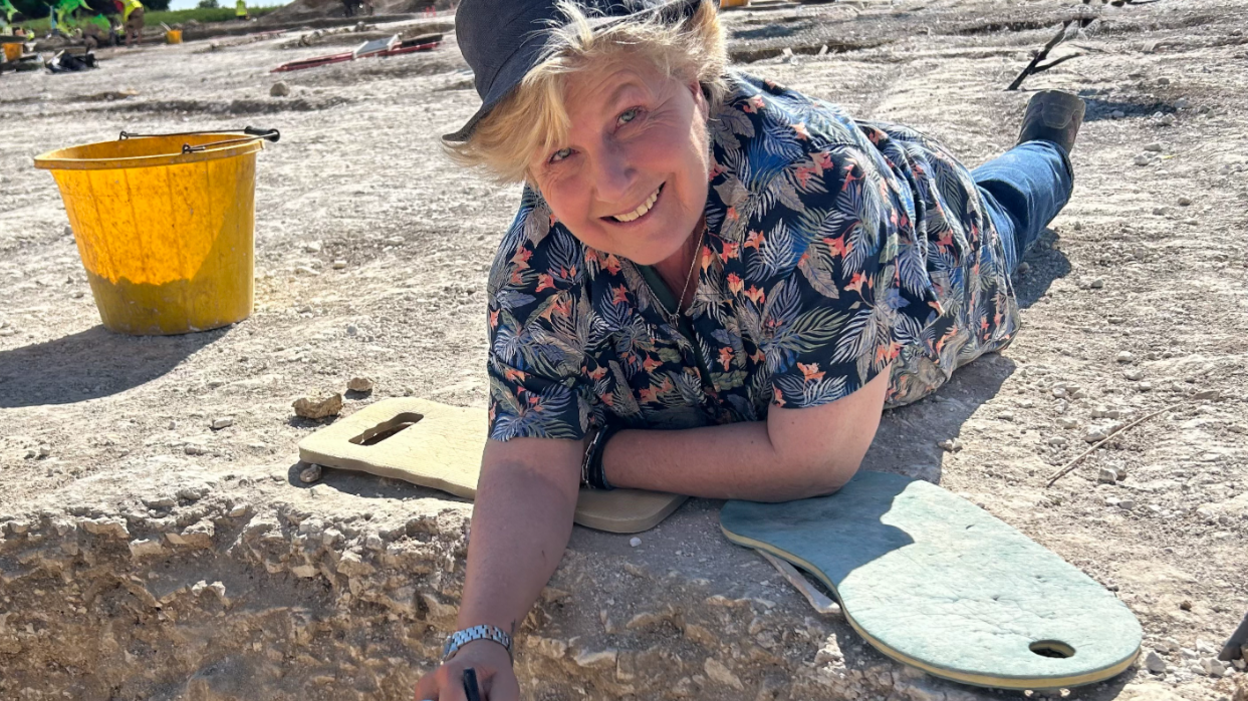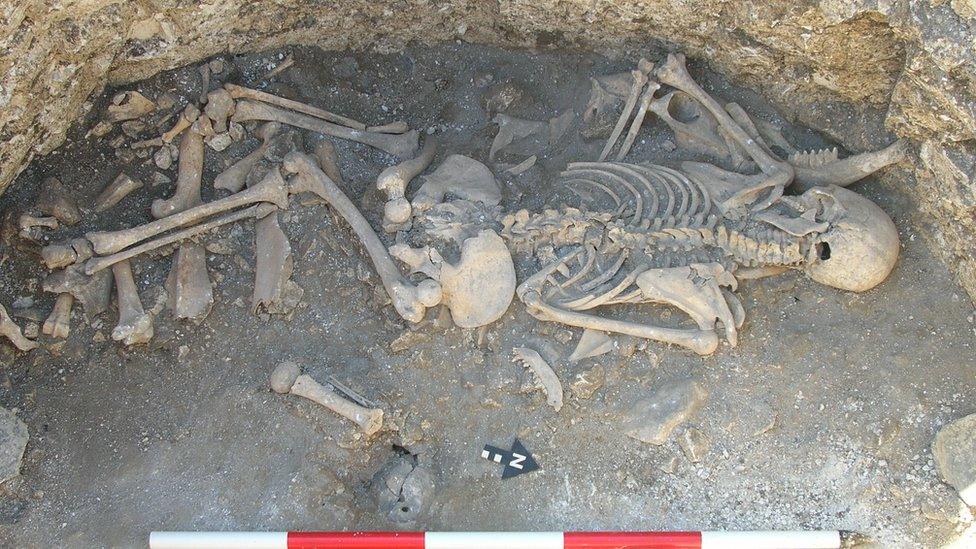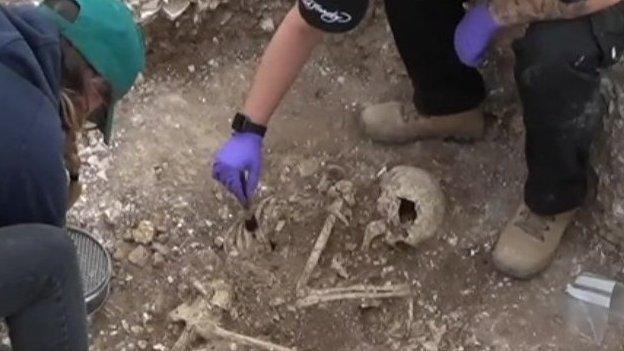Sandi Toksvig probes Iron Age murder for TV series

Sandi Toksvig worked with university researchers at an Iron Age site in rural Dorset
- Published
TV personality Sandi Toksvig has been helping to unravel a 2,000-year-old murder mystery as part of a new TV series.
The presenter filmed with Bournemouth University researchers and students at an archaeological dig near Winterborne Kingston in Dorset where an Iron Age settlement and cemetery was excavated.
During the episode of the Channel 4 show, called Hidden Wonders, researchers discovered the skeleton of a teenage girl buried face down in a pit, believed to have been murdered as a human sacrifice.
Throughout the series, Toksvig, who has a degree in archaeology and anthropology from the University of Cambridge, explores four sites to unearth the secrets of Britain's past.
More from Dorset
Drivers face delays as A35 bypass shuts in phases
- Published27 October
Environmentalists reject water firm funding offer
- Published27 October
Funding secured for nature to flourish in south
- Published27 October
Dr Miles Russell, the university's principal academic in prehistoric and Roman archaeology, worked with the former Great British Bake Off host during filming.
He said: "The team were particularly shocked to hear that this could have been a human sacrifice, but it was obvious from Sandi's own interest in archaeology that she was deeply moved by what had been uncovered."
"Sandi was also very interested in the artefacts discovered by students in the pits and with the deceased, such as bronze brooches, a bronze bangle and a bone comb.
"The finds were often in a Roman style, demonstrating a blend between Roman and traditional Iron Age customs, helping us to build up a picture of the how these people lived and died 2,000 years ago."
Researchers have been examining DNA and isotopes recorded for the burials at the site where the Iron Age Durotriges tribe lived.
Their analysis suggests that the tribal lineage can be traced back to a single woman and that the communities were centred around the mothers of families, with men invited to live with women rather than the other way round.
Dr Russell said it marked the first time researches had found evidence that some ancient western European societies were led by women and passed belongings down through the mother's side of the family.
Sandi Toksvig's Hidden Wonders will be available on More4 from 21:00 GMT on Tuesday 4 November.
Get in touch
Do you have a story BBC Dorset should cover?
Related topics
More like this
- Published21 May 2024

- Published30 June 2022
